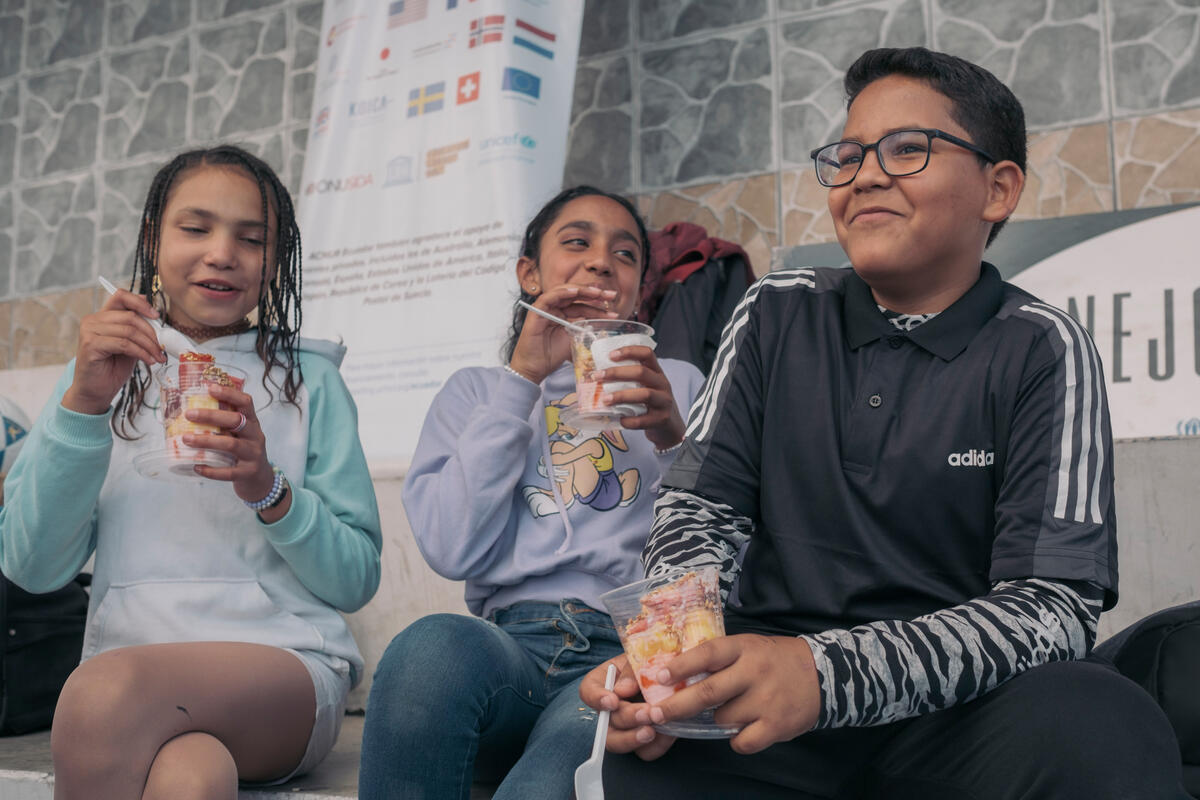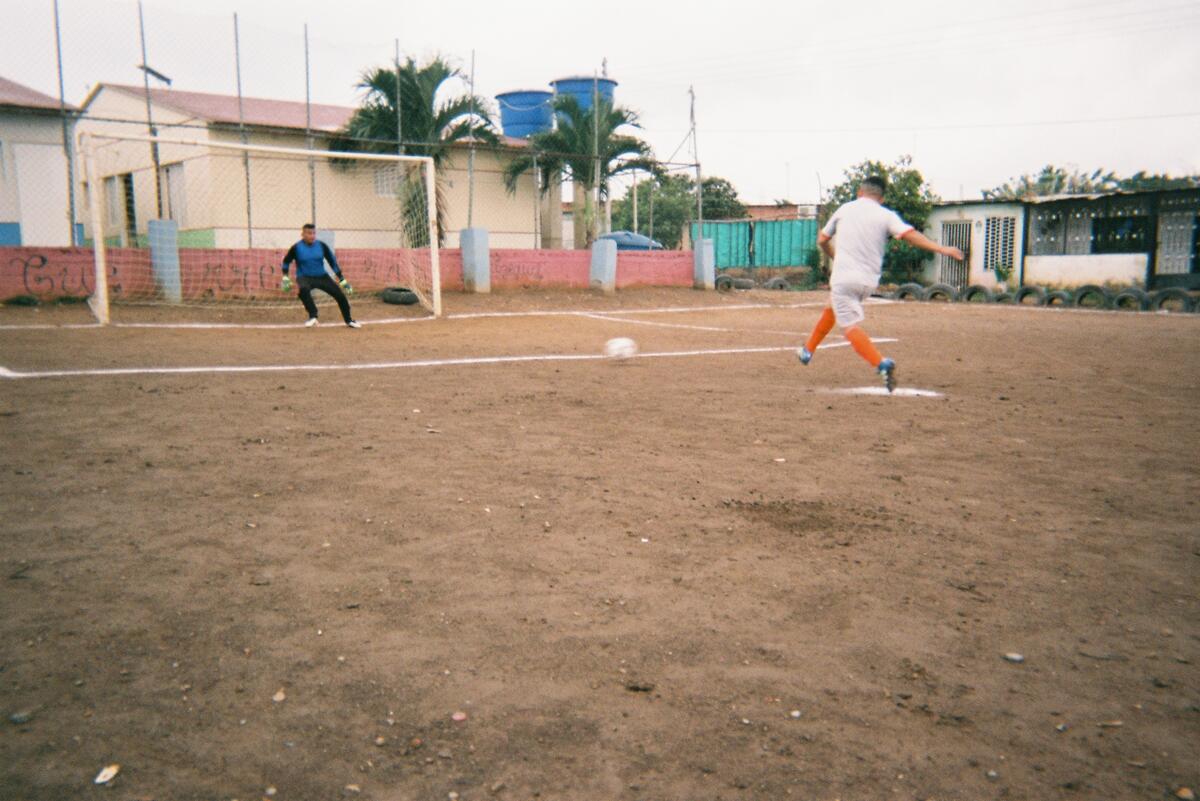UNHCR emergency training goes regional with new programme in South America
UNHCR emergency training goes regional with new programme in South America

QUITO, Ecuador, October 9 (UNHCR) - The UN refugee agency has held its first regional Workshop on Emergency Management (WEM), assembling 25 participants from across Latin America to prepare participants to be part of the area's first rapid reaction team.
The week-long training course in Ecuador, part of a UNHCR drive to decentralize staff and resources and bring them closer to displaced people, was jointly organized by the UNHCR Emergency Preparedness and Response Team and the agency's Americas Bureau.
Instead of being a WEM, the UNHCR global emergency training courses held several times a year in Europe, the course was nicknamed WEMITO - Spanish for "small WEM" - because the training was over six days instead of the usual 10.
"The team is now ready to be deployed at 72 hours notice to provide coordinated support during man-made emergencies or natural disasters on the subcontinent," explained Serge Malé, the Panama-based deputy director of UNHCR's Americas Bureau. "It is a first for UNHCR and we hope it will soon be replicated in other regions."
The WEMITO was similar in content and spirit to UNHCR global emergency workshops. Drawing on participants' previous knowledge and experience, it covered operational themes like international protection and negotiation skills, logistics and administrative requirements, external relations and staff security. The regional angle helped to focus on local issues and scenarios.
The course included practical training in equipment such as radio and GPS, four-by-four driving and first aid. With limited time, the workshop focused on team-building and information-sharing rather than acquiring new skills, with a strong emphasis on being well-prepared.
"The week provides an overview that helps to introduce the wide range of skills that are needed within a team during an emergency," said John Telford, the course's trainer and organizer.
Telford, who has prepared hundreds of UNHCR staff for emergency deployment, stresses that preparedness and good teamwork are key to success. "Everybody must clearly understand their role within the team, as well as communications and reporting lines."
Diego Morales, a participant from UNHCR's office in Colombia, said the course helped him to understand the elements that come into play during an emergency and how he can contribute, not only with his professional expertise in administration but as a team member. "I definitely feel more prepared now, with a better understanding of the different phases of the emergencies - before, during and after."
Josep Herreros, a participant from the Ecuador office, said the workshop also provided an opportunity to exchange ideas. "It is not often that colleagues from all over Latin America have a chance to get together and discuss themes of common interest."
The week also provided an opportunity for information-sharing and dialogue with outside bodies, with a strong emphasis on coordination with other UN agencies and governments. The World Food Programme discussed the logistics of food delivery, while the Office for Coordination of Humanitarian Affairs, OCHA, explained the coordination mechanisms in place in the region.
The emergency team will function on a roster basis to provide protection support and leadership in man-made or natural emergencies from Argentina to Panama.
By Marie-Hélène Verney in Quito, Ecuador








